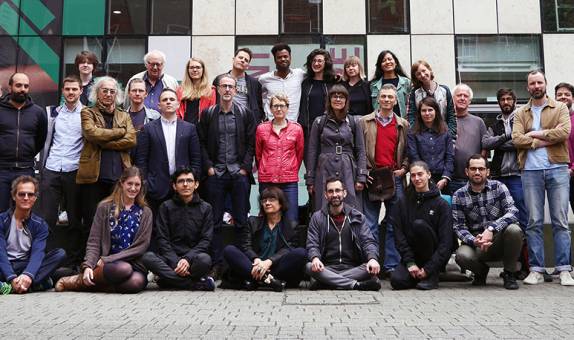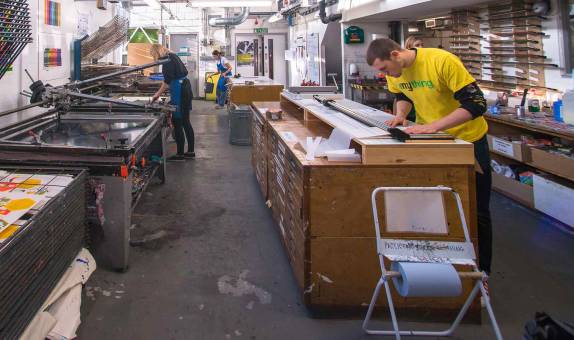Research ethics
Ethical research at Kingston School of Art
Researchers at Kingston School of Art engage human participants within a wide spectrum of disciplinary and cultural settings. Formats and media of engagement range from interviews, participatory workshops, surveys, social media interaction, as well as practice-based and practice-led research through media such as film, design, art, creative and life-writing, architectural and urban projects. The scales of interactions reach from gathering large datasets to personal interactions and autobiographical research.
Any research at KSA involving human participants must be subject to an appropriate level of ethical scrutiny through KUREOS (Kingston University Research Ethics Online System) in order to protect participants, researchers and the University. KSA endeavours to build a community of ethical researchers sharing their expertise across disciplines and offering advice as research ethics reviewers.
Researchers at KSA reflect on the ethical issues that are raised by their research to justify, in ethical terms, the practices and procedures that they intend to adopt during their research. The University itself seeks to ensure that its research does not expose participants, staff, or students to unnecessary or undue risk; that there is no morally inappropriate use of the outcomes of research involving human participants and the participant's welfare, dignity and privacy are protected. Ethical review must occur before the study begins and participants are enrolled.
Research ethics training
Online research ethics training, is available through Epigeum, with two training modules on Becoming an Ethical Researcher and on Research Ethics in Practice.
Reading list
A research ethics reading list, linking to guidance and academic publications, is available to all researchers. It contains sections on
- Introduction to research methods
- Social Media
- Researching with children
- Interviews, recording and ethnographic research
- Oral history
- Researching with vulnerable groups and participants
- Managing risks to the researcher
- UKRIO research ethics presentation
- General reading.
Information on guidance and procedures
KU Research Guidance and Procedures, as well as the resources named above, are available for Kingston University staff on StaffSpace, for research students on Canvas and for taught students on MyKingston.
Postgraduate researchers should consult their supervisors in the first instance.
For questions about research ethics and advice on your application please contact:
- KSA Research Ethics Lead: Dr Christoph Lueder
- For queries regarding the use of KUREOS, please email kureos@kingston.ac.uk
























